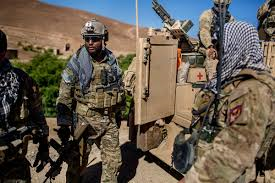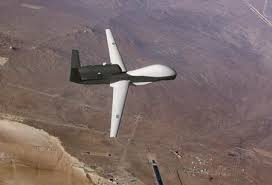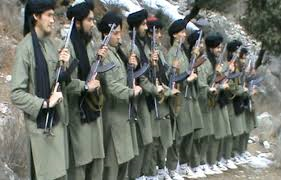Having spent several weeks auditing ballots in Afghanistan’s fraud-plagued presidential vote, election officials there are expected to declare a winner within days. If the two candidates vying for the post fail to reach a power-sharing deal beforehand, the announcement could easily kick off a wave of unrest that would all but guarantee a catastrophic wind-down to America’s longest war.
The window of opportunity to strike a compromise is narrowing dangerously. Without a new government in place, the Obama administration may well pull back on plans to keep a military contingent in Afghanistan beyond 2014, and without that force, the international community will cease bankrolling the impoverished nation.
Abdullah Abdullah, the former foreign minister, not without reason, is fighting the outcome of an election in which his rival, former finance minister Ashraf Ghani, is widely expected to be declared the winner. Western officials say that the audit of millions of ballots cast on June 14 has made clear that the scope and sophistication of fraud was staggering even for Afghan standards. Having ceded another fraud-plagued election to President Hamid Karzai in 2009, Mr. Abdullah and his powerful backers are not willing to concede defeat in another corrupt election.
But they ought to understand that they stand to lose far more by being intransigent. The Taliban are fighting hard to retake crucial urban areas, and the country’s anemic economy is likely to collapse amid the uncertainty.
The Obama administration, which had preferred to limit its involvement in the election, has sensibly offered a power-sharing structure under which the losing candidate, or a designee, would hold a chief executive position with considerable authority.
A senior American official said that Mr. Ghani and Mr. Abdullah appear close to signing off formally on the deal, but they remain at odds over just how much power the losing candidate would wield. One sticking point is whether ministers would report to the chief executive, rather than to the president.
Continue reading the main story 25Comments Continue reading the main story
Recent Comments
iona
1 hour ago
Everybody OUT. Let them deal with their own problems we only make things worse because we are there to support either thug and get those…
Prof.Jai Prakash Sharma,
1 hour ago
The entire history of Afghanistan being full of external power rivalry, bloody tribal feuds and wars, how could it deviate from its…
FXQ
4 hours ago
Flip a coin, whoever wins is the president, and the other is vice president for the first term. Then, the roles are switched for the second…
- See All Comments
- Write a comment
Mr. Ghani and Mr. Abdullah have displayed considerable pragmatism in recent weeks as the electoral dispute has dragged on, raising hopes that they could in fact govern jointly. This week, the two men sent a letter to NATO leaders meeting in Wales, pledging that they are committed to forming a “government of national unity that will honor the epic participation of our people in the electoral process.” The message shows that both men understand continued international support to be indispensable for the fledgling state they aspire to lead.
A solution to the government crisis will take more than pragmatism, though. Both candidates must rein in their most reactionary constituents and work hard to manage expectations in the days ahead. The power-sharing deal will need to be detailed, clear and public to reduce the temptation for the winner to sideline his rival after taking office.
In this crisis, the Obama administration has had to take on a broker’s role. It must remain engaged and patient in helping the Afghans avert the chaos of a government rived by ethnic or sectarian divisions. The alternative could look much like Iraq’s unraveling. Except in Afghanistan, it would almost certainly come quicker













